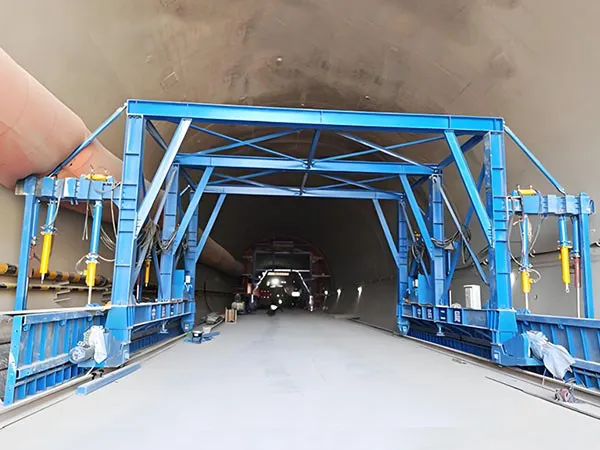This guide provides a comprehensive overview of tunnel lining trolley maintenance practices to maximize lifespan and ensure efficient operation. It covers various aspects of inspection, lubrication, cleaning, repair, and storage, tailored for the harsh tunnel environment.
Tunnel Lining Trolley Maintenance Guide

I. Introduction:
Tunnel lining trolleys are critical for the safe and efficient construction of tunnel linings. Their robust construction is designed to withstand heavy loads and abrasive conditions, but regular maintenance is crucial to prevent premature failure and costly downtime. This guide is applicable to various types of tunnel lining trolleys, but consult the manufacturer’s specific documentation for detailed instructions and recommendations.
II. Safety First:
Lockout/Tagout: Always follow proper lockout/tagout procedures before performing any maintenance. Isolate the trolley from power sources and ensure it cannot be accidentally started.
Personal Protective Equipment (PPE): Wear appropriate PPE, including hard hat, safety glasses, gloves, and steel-toed boots. Hearing protection may be required depending on the maintenance task.
Confined Space Entry: If working inside enclosed sections of the trolley, follow confined space entry procedures.
Qualified Personnel: Maintenance should be performed by trained and qualified personnel.
Manufacturer’s Manual: Always refer to the manufacturer’s manual for specific safety guidelines and procedures.
III. Regular Inspection Checklist:
Regular inspections are key to identifying potential problems before they lead to major failures. Frequency should be based on usage and environmental conditions, but daily pre-shift and weekly thorough inspections are recommended.
A. Daily Pre-Shift Inspection:
Visual Inspection:
Overall Condition: Check for obvious damage, cracks, deformation, or excessive wear.
Hydraulic System: Inspect hoses, fittings, cylinders, and pumps for leaks.
Electrical System: Check wiring, connections, and switches for damage or loose connections.
Wheels and Rails: Inspect wheels for damage, wear, and proper alignment. Check rails for debris and obstructions.
Safety Devices: Verify the functionality of emergency stops, alarms, and limit switches.
Formwork: Inspect the formwork for damage, cleanliness, and proper alignment.
Operational Checks:
Movement: Ensure smooth and consistent movement of the trolley.
Hydraulic Functions: Test all hydraulic functions, such as lifting, lowering, and tilting.
Brakes: Verify proper brake function.
Lighting: Check the functionality of all lights.
B. Weekly Thorough Inspection:
All items from Daily Inspection.
Structural Components:
Welds: Inspect welds for cracks, corrosion, or signs of stress.
Bolts and Fasteners: Check for loose or missing bolts and fasteners. Tighten as necessary.
Frame: Inspect the frame for deformation or cracks.
Hydraulic System:
Fluid Level: Check the hydraulic fluid level and top off as needed.
Filters: Inspect and replace hydraulic filters according to the manufacturer’s schedule.
…
For more detailed information on tunnel lining trolley maintenance, please click here: https://www.gf-bridge-tunnel.com/a/blog/tunnel-lining-trolley-maintenance-guide.html


